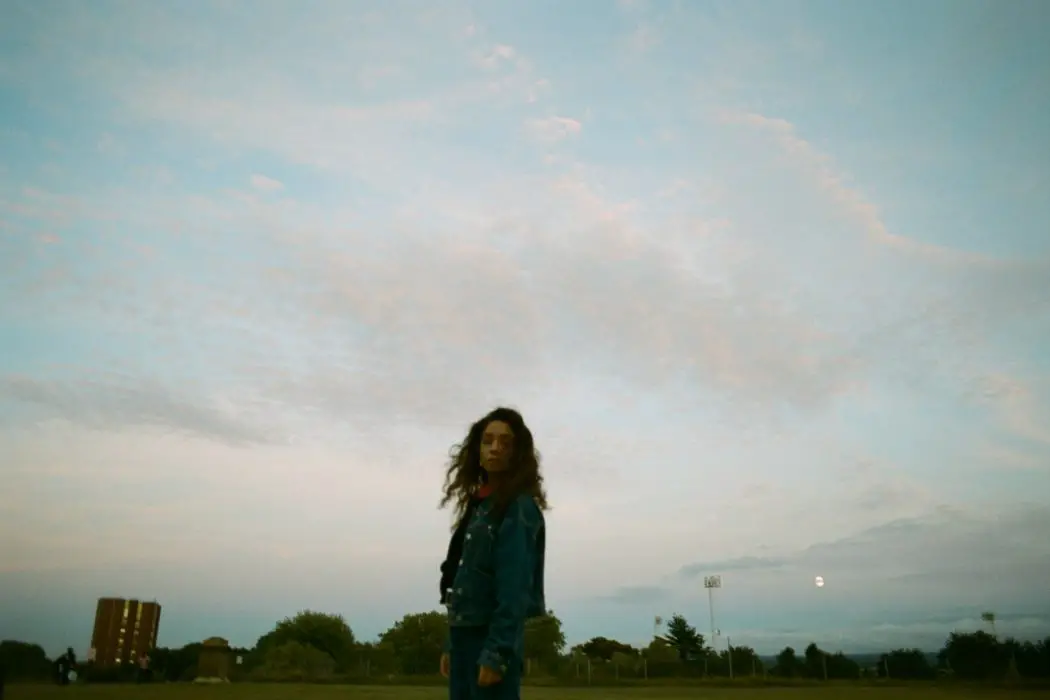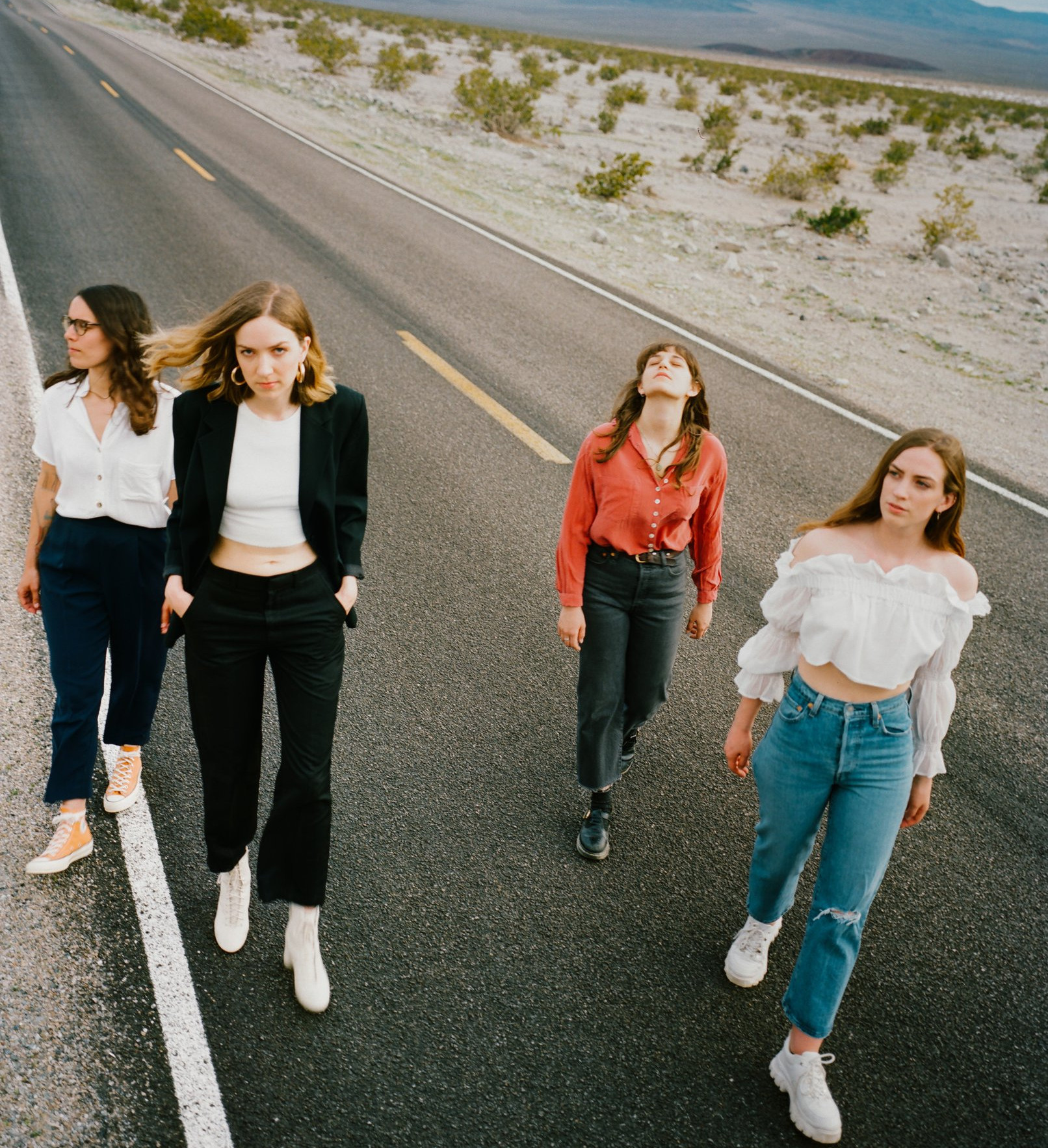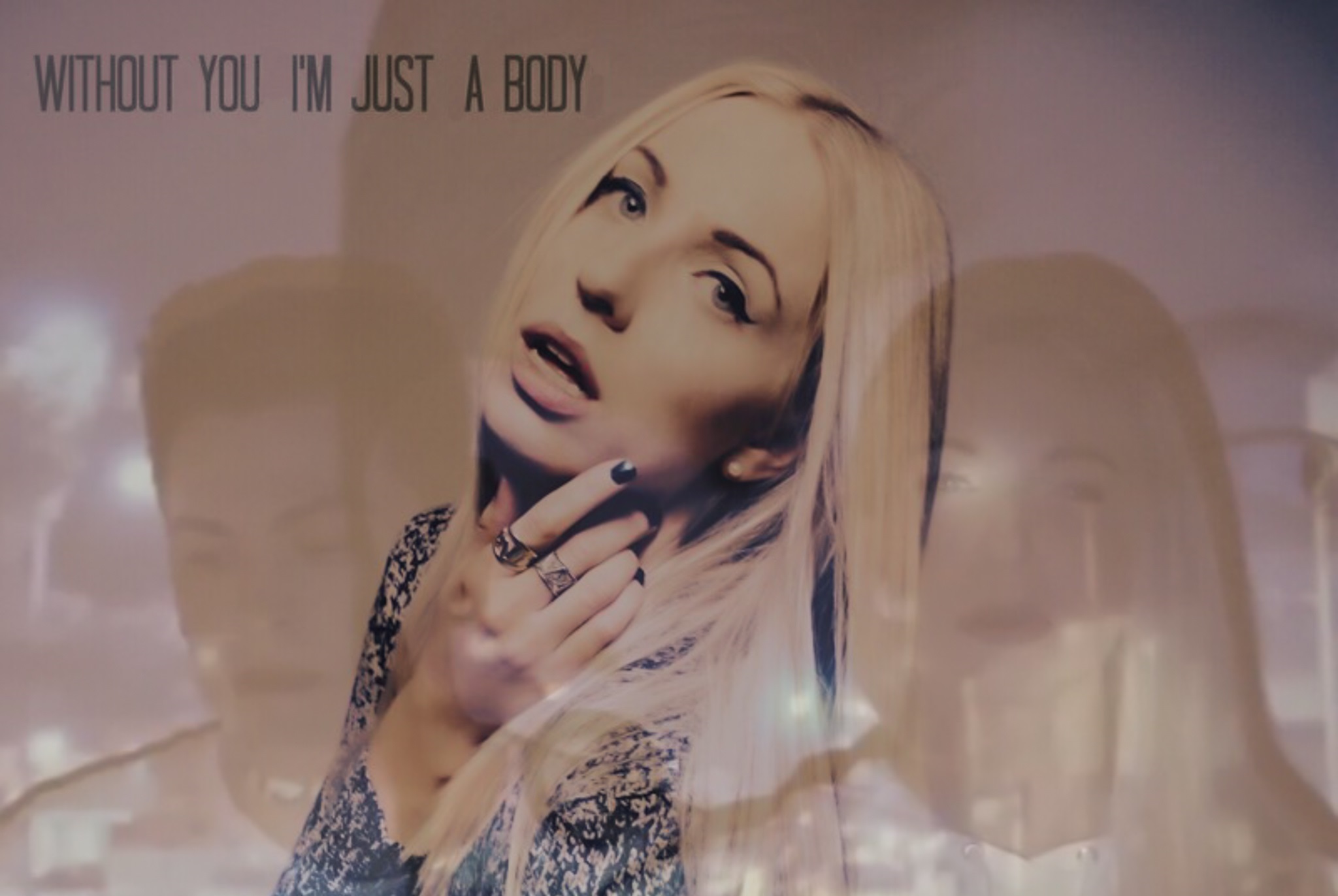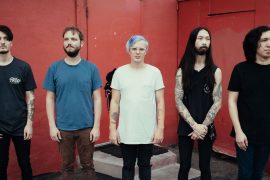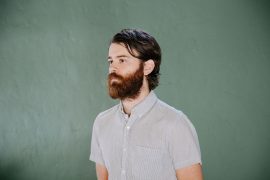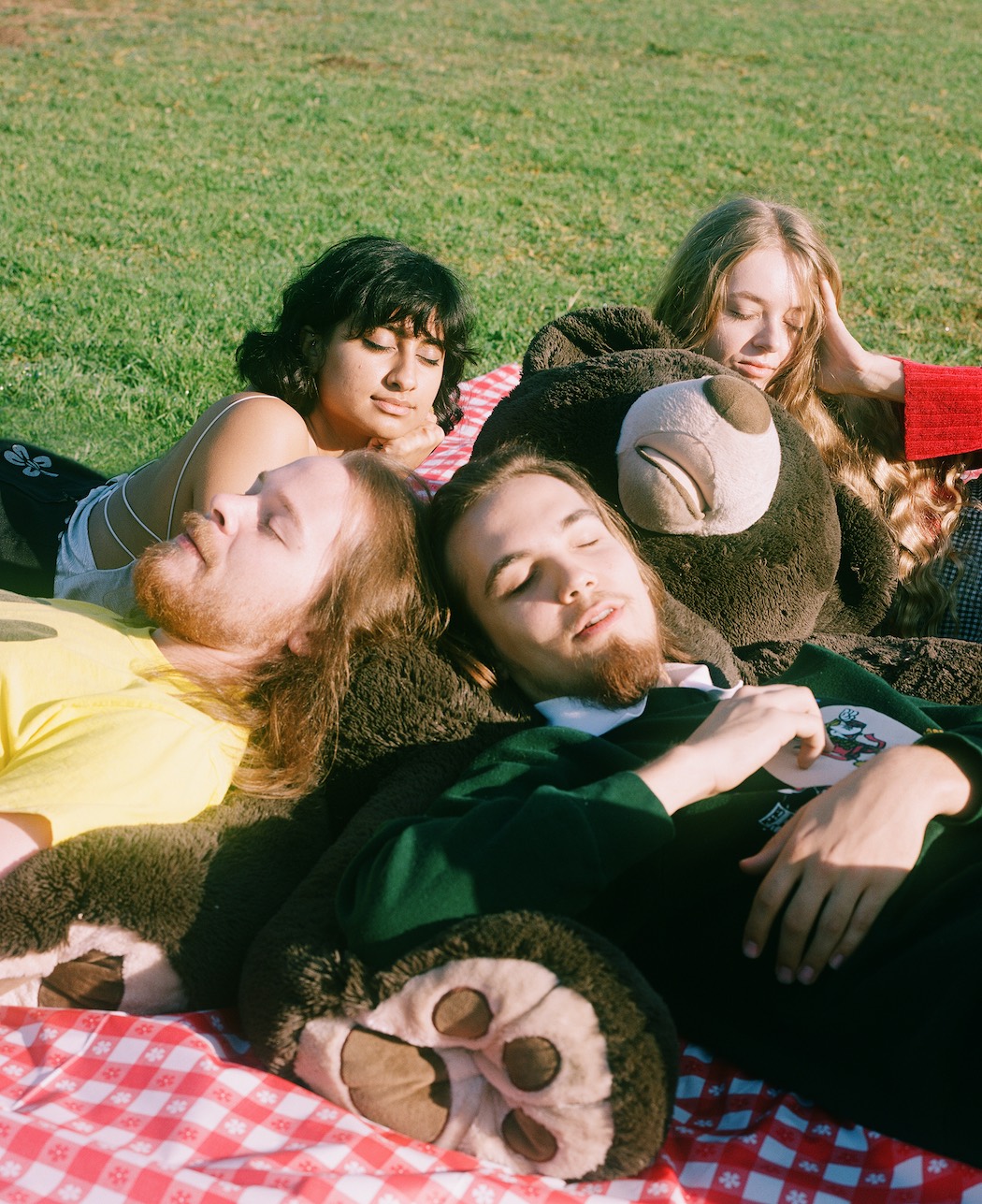London-based singer/songwriter Jasmine Jethwa discusses her roots in dance and songwriting, the process of writing and recording her debut EP, and the artists who inspired her along the way.
Stream: “Empty Waters” – Jasmine Jethwa
Jasmine Jethwa’s debut EP Hurricane starts with a pulsing rhythm. There’s something magnetic in the way the guitar strums sound: Contained, alive, ready to break free. As far as ways to start a debut project go, it’s hard to think of a better one.
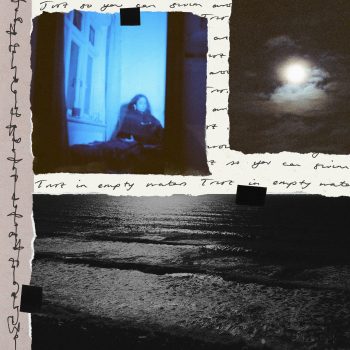
Trust in empty waters
Just so you can swim around
Keeping all sorrow
Six feet above the ground
And I, I,
Know you wanna pass the time
Though you seem to always try
To stop all the clocks
And cut off of the telephone line
But all that you’re saving
The wars you won’t fight
Is it just to feel nothing
Until you’re satisfied?
A 21-year-old singer/songwriter hailing from London, Jasmine Jethwa’s music is exciting and innovative – a much-needed breath of fresh air from the radio-ready pop hits of the 21st Century. Her lyrics are collages of images and feelings that paint the picture well enough to leave curiosity brewing in the listener’s mind. The folksy tones that mark her signature sound are warm and inviting. Her voice is haunting in the best way.
Having introduced her artistry this February through debut single “Running Circles,” Jethwa released her follow-up single “Empty Waters” today, March 18, 2020.
Amidst the chaos of the world and nerves of releasing her first project, Jethwa finds herself in the eye of the storm, the calmest place, paradoxically in the center of it all.
Atwood Magazine spoke to Jasmine Jethwa about her roots in dance and songwriting, the process of writing and recording her debut EP, and the artists who inspired her along the way.
Drifting away
Miles out into the ocean
Oceans apart, wandering, where you going?
I bet you wouldn’t notice
There’s darkness in the water
You’re lost
And you don’t know it
— —
:: stream/purchase Jasmine Jethwa here ::
Stream: “Empty Waters” – Jasmine Jethwa
MEET JASMINE JETHWA
Atwood Magazine: Hello, Jasmine.
Jasmine Jethwa: Hi, Nicole.
First of all, I love your music. I'm so excited for everything to come out. I think it sounds so original, and your voice is amazing. So I'm really glad we're getting to have this conversation.
Jasmine Jethwa: Me too, thank you for wanting to talk to me.
Oh my god. That's no trouble. I want to start just understanding a little bit more of your background, how and when did you decide that you wanted to be a musician and have this as your career?
Jasmine Jethwa: I was always doing dance for the majority of my childhood. And I was doing like 18 hours a week, because that’s what I wanted to do. And while I was doing that, I was kind of always writing and singing on the side, but I didn’t really think I was much good and I couldn’t read music. I didn’t think I was much good so I didn’t do it. And then while I was at my school, doing dance, I just I fell out of love with it completely. And really decided I have to do music, I want to do music. And I didn’t get into the school I was into, I tried to change my strand and I didn’t get in. So I went somewhere else, I went to East London Arts and Music and I did music there for two years with, you know, classes in songwriting and all sorts. And yeah, I knew when I was there that, I was going to take it seriously.
Since you have this background in dance, and music is very connected to dance, I feel like they are two very different modes of expression. But like, what do you think, is so special about each of these because I could feel that they're very much connected, but it kind of, you know, like, how do you see the interconnectedness?
Jasmine Jethwa: I think it’s the creative expression that for me is just such an important thing to have in my life.And again, with dance it was expression through like, your body’s movements and how you can express that in sounds, if the beat is one way or the lyric another, and you can decide in dance, if you’re going to express, you know, like moving through the beat or voice you know, you can kind of decide.
What attracted you to dance and music in the first place?
Jasmine Jethwa: My mom was a dancer. My granddad is a scenic painter and I grew up with ballet all around me. He did the backdrops for the Royal Ballet, he went on tour with multiple artists like that before graphics existed. He would paint the backdrops, and so he was at the theater all the time. And so I just I went along, and I was surrounded by and watching so many ballet shows. I was like, that’s what I want to do. And that’s how I go into it.
And then you got into music parallel to that?
Jasmine Jethwa: I was always singing and I had a keyboard, a really small keyboard and loads of the keys had fallen off, so I sellotaped them back on. I just like googled how to play the piano, taught myself a couple of chords. And I just started singing and writing and that just kind of, I was just playing what I thought felt good. But that was at the same time as dance, but at the time, I loved dance more and then it changed.
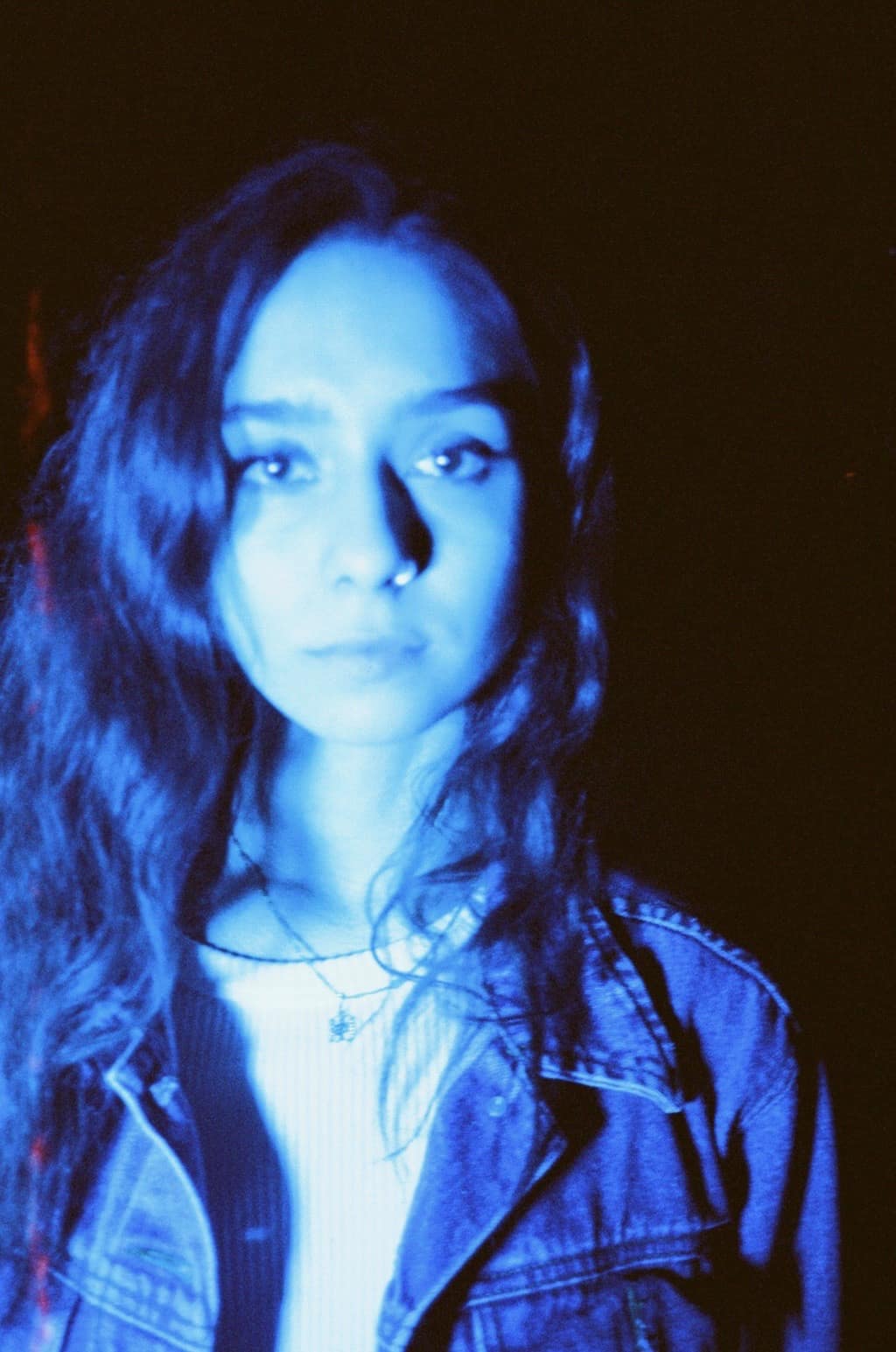
Do you have any idea of what made you fall out of love with dance? Or was it just like a natural thing?
Jasmine Jethwa: I think with dance you can’t be, unless you want to go into choreography, you’re not deciding what you dance. You’re being told what to dance and how to do it and it’s very strict. I mean, it’s still creative expression, but it’s different in terms of you create and you being the one to create what you’re doing. You’re being told by a bunch of people do this and do it this way. if it’s not done this way, then it’s not right. I think it was the rules, that after a while I thought this isn’t as freeing as I thought.
And then when you started to pursue music, were there any artists that you looked at as inspiration? Were there artists that you grew up listening to that you wanted to maybe channel?
Jasmine Jethwa: Oh, yeah, in the house we’re playing good music all the time. I love Tracy Chapman, David Gray, Joni Mitchell, Carole King, kind of classic songwriters. And I also listen to a lot of James Fauntleroy. Brandi was another influence and obviously Bon Iver and things like that as I got older and was exposed to more music.
Now you're getting the chance to tell your story through your music, so who's the Jasmine that we're getting to know through your music? What are a few words that you'd use to describe the story that you're telling and what the character in your music is like?
Jasmine Jethwa: It’s definitely honest. I think I like leave a bit back. I don’t want to give everything out in every song. I think what my particular way of songwriting may be is not like direct ‘You broke my heart and then this happened and then I felt really upset’. I’d rather sing about the same thing, same emotion and have the same feeling be understood by whoever’s listening. But holding a bit back or saying it in a different way that isn’t as obvious maybe. I don’t do that intentionally, that just kind of just happens. I know what resonates when I’m collaborating with someone.
I understand the holding back though because it's, it's not, it's already a vulnerable position to begin with to put out your words and your feelings, and to give everything away must be kind of maddening because you're just pouring your heart out to everyone and just leaving it all out there and like what's left for you? Right?
Jasmine Jethwa: I think there’s also strength in not saying it all as well. It’s fine to leave stuff back, it doesn’t mean I’m scared of saying it, I just think I’d rather say it in my own way, and say it with strength.
When you mentioned to those artists that inspire you like Carole King and Joni Mitchell, what is it about their songwriting or their music that you want to channel into your own?
Jasmine Jethwa: I think it’s just it’s such a high standard of songwriting. And it’s so emotive and heartfelt, and it’s not dressed up in anything. There’s a Joni Mitchell album called Blue, and Carole King her album called Tapestry, both those albums are incredible. They’re so they’re so strong lyrically and the melodies are beautiful. I try to take some of that classic atmosphere.
What inspires you the most when you're writing?
Jasmine Jethwa: How I’m feeling or what’s going on in my life, or someone else’s life. Has to be something that I’m feeling though, I can never write about something that isn’t happening to me or happening to someone close to me. I find that quite hard.
With your debut EP, Hurricane, what's the kind of story that you want to tell us?
Jasmine Jethwa: I think each each song for me, it’s all the same story but it’s all like different emotions. I think it’s quite retrospective. And particular in “Running Circles”, that song for me particularly was quite cathartic for me in terms of the situation I was in. I wrote that song and let the feelings go. The EP songs came at different times, so “Running Circles” was written last year, “Empty Waters” was written two years ago, “Hurricane” was about six months ago, “Turn off the TV” I’ve had for a while. The emotion behind all of them, I was processing heartbreak in different ways.
So these songs were written at different times in your life. How do you choose which songs are going to be in the EP?
Jasmine Jethwa: The songs I’ve picked on this EP sounds like the same story and I thought they’d show and give a good representation of who I am as an artist. They weren’t particularly hard to pick, they just felt like the right things. They felt like the right introduction to me.
So when you picked them, what were you looking for?
Jasmine Jethwa: I feel like each of the songs represent a different part of my sound. “Turn off the TV” is you know, for me, a really great song; “Hurricane” is more of an emotion, a feeling, instrumentally it takes you somewhere. “Empty Waters” there’s a little bit more electronic. I feel like they’re all slightly different in their own way and they give a good representation of my whole sound.
When you're recording the songs, if they're old, how do you channel what you were feeling when you wrote it into the recording and production process to make sure the song comes out with the same intentionality with which it was written?
Jasmine Jethwa: I don’t feel like I have any problem recording vocals for songs I wrote a couple of years ago. For me, with all my songs, I feel I’m so connected to them. The ones that are good anyway. I feel like I just have to go back to that intention, where I was. I close my eyes, get behind the mic, remember where I was and how I was feeling when I wrote that song, when I sang that song. And for me, it takes a couple of moments I’m there again. I feel like when you create something like that, you’re never that far away from it, no matter how long it’s been since you created it, for me anyway.
Do you think it's cathartic a second time when you're recording and let it all out there or do you think the whole catharsis comes only when you're finished writing?
Jasmine Jethwa: I think most of the catharsis comes after, after you’ve written and after you’ve sung it and so then you can enjoy it. Obviously I love the writing, I love the singing but you get to appreciate the song when you’re not singing it and when you’re just listening.
Now we're gonna go a little bit more into each song in EP. ''Hurricane,'' I think, is my favorite one because it just has so much power to it. I feel like it starts the EP with a lot of energy. It's very powerful but not in your face, it's this quiet, muted energy that you know is there, and it's like you can feel its power, but it's still brewing, which I think is really exciting. And lyrically, it also says a lot without saying too much, which I love.
Jasmine Jethwa: Exactly. That for me, in my songwriting, is the absolute key. I think that song says what I wanted it to say without saying (sings) “this is how I’m feeling”. It lets the listener take it to where they want to take it and still keeping it mine.
I don't know if you'd want to go into this since you said that you like keeping things a little bit closer to you, but could you tell me a little bit about the story behind it and what the writing and production process was like for the song?
Jasmine Jethwa: I might not to go into lyrics. But it all happened so naturally, the song was written with Aquilo and they’re both amazing lyricists and instrumentalists, and they just started playing that (sings guitar part) on the guitar. And the melody came out so naturally. It had a feeling to it and it carries on building like the feeling of how I was feeling, I wanted that to be mimicked or mirrored in the production, in the way, sonically it gets bigger then it gets smaller again.
'Hurricane' is the title track of the EP. A hurricane is something that, if you're living through it, it can be quite scary and destructive, but if you just stopped to think about what a hurricane is, it's quite a powerful force of nature and it's something that you look at in terror but also awe because you can't believe that this just happens naturally. There's such energy to this word and what it represents, what was the idea behind having that as the title track and the title of your EP?
Jasmine Jethwa: To me it’s exactly what you just said. It can be so destructive, but it’s also so amazing and like, it can change everything everywhere. So quickly. And for me, obviously the “Hurricane” track is like, you know, that feeling, and it feels powerful, it feels like something’s coming. I wanted this EP to be that, you know?
“Running Circles” is your debut single, and it's how you’re metaphorically shaking hands with people and saying, “Hello, nice to meet you, I’m Jasmine.” Why did you choose that as your introduction?
Jasmine Jethwa: I chose that song because I knew after writing it, ‘This is the first song’. I think it captures everything, it’s immediate. This song kind of is just there, there’s no build up, there’s no you know ‘Where is this going?’ or metaphor or any other meaning other than what the song is about. I didn’t even question it, it was just a feeling.
The video is very nice and sweet, with the retro imagery and the Super 8 camera and stuff. It’s really cool. And I feel like visually it kind of introduces us to you, not only because you’re in the video, but because we get to understand a little bit more of your aesthetics. How did that video come to be?
Jasmine Jethwa: We just wanted that video to be an introduction to who I was, really, so it was shot in my area, South London, all shot on film, which I love, which I wanted. Which kind of gives it you know, classic feel, which I guess I want the songs to be mixed with the modernity of now. My friend Leah Rustomjee came up with that treatment. We just wanted it to be really organic, really natural, and then we had a rough idea of what we wanted and it came to the day and the weather was completely different and we weren’t able to get into one of the places that we planned.But it all came together and naturally looks the way it does.
“Turn off the TV” to me feels like a very big closure/breakup song. What I love about it is that it's a little quieter than the other ones. But the lyrics again, they’re like a mosaic, because you transmit the feeling of closure and the feeling of sadness, I guess and heartbreak but through images. Again, you don’t say too much, but we as listeners get to know exactly what you’re feeling. When you were writing the song, how did you pick what images you were going to include?
Jasmine Jethwa: Couros, who I wrote it with, we were actually writing a different song. And we stopped and he just, he was fooling about, noodling and he started playing that (sings guitar riff) and I just got the mic and I got the melody in two takes. And when I write, I always get the melody first. And when I sang that melody, the words painting, color, turn off TV, all those are in the first ever take of it. No other lyrics are there at all, you know, just messing around so there’s no proper words and that’s how a lot of the time I write. But yeah, it was just instinctual. So like turn off the TV and paintings, and then I second guess myself, but there was no there was no other word. I didn’t want to change anything because it all just captures that moment and that feeling. That song for me, I don’t even know what happened. I honestly felt like I channelled something in that moment.
“Empty Waters” is a little bit more ominous, I think it closes the EP with a kind of warning. So over the course of the tracklist why did you choose so close with this one and what is it about this one that made you want to include it?
Jasmine Jethwa: I wanted to include this song because it says a different side to the story. And compared to the other songs I feel on first listen, you might not even know what it’s about. It’s a different way of saying what needed to be said just in this particular song. And I chose to end the EP on this, because I thought, when the next projects or song or whatever that comes out after is that, I think it’s a good lead. Also it does feel like closure to me as well because it’s like darkness but there’s a slight hopefulness towards the end. And so it could lead somewhere else. It just felt like the right one. It’s sad and it’s reflective.
I saw a post on your Instagram where, on an article about “Running Circles”, there’s a comment saying every song you wrote was therapy. When you’re writing, do you normally approach writing as therapy? Or does it end up becoming therapy after it’s written?
Jasmine Jethwa: I actually didn’t write that comment, my producer Couros wrote that. When he saw the article had been posted he said “every song we wrote has been therapy”. Songwriting is often like that for me too though.
Do you feel like when you’re writing about a hard moment in your life or something, does it help you process and work through it and just let go of the feeling a little bit more?
Jasmine Jethwa: Yeah, I think once I’ve created something from the sadness I was feeling, there is always some value. There’s value in everything, there is value in sadness, and if you can create art of it… It always helps me process. I think writing particularly really helps me process what I’m trying to say. And particularly, what’s different to writing a song as opposed to having a conversation is that with a song you can say exactly what you want to say without being like ‘Oh fuck, I shouldn’t have said that,‘ or ‘Oh, I rambled a bit‘. You can be so definitive and so clear in what you want to get across, you have time to think about it and mold it and shape it into whatever you want, and where does it lead to and how did it end and how did it begin and what does that say? It definitely helps me process it because, you know, I can choose in a way how it ends.
You talked about dancing earlier. Do you think that dance might be something you’ll incorporate in your live shows eventually?
Jasmine Jethwa: Definitely, I’d love to incorporate in my live shows later down the line. It’s definitely something I’m thinking about.
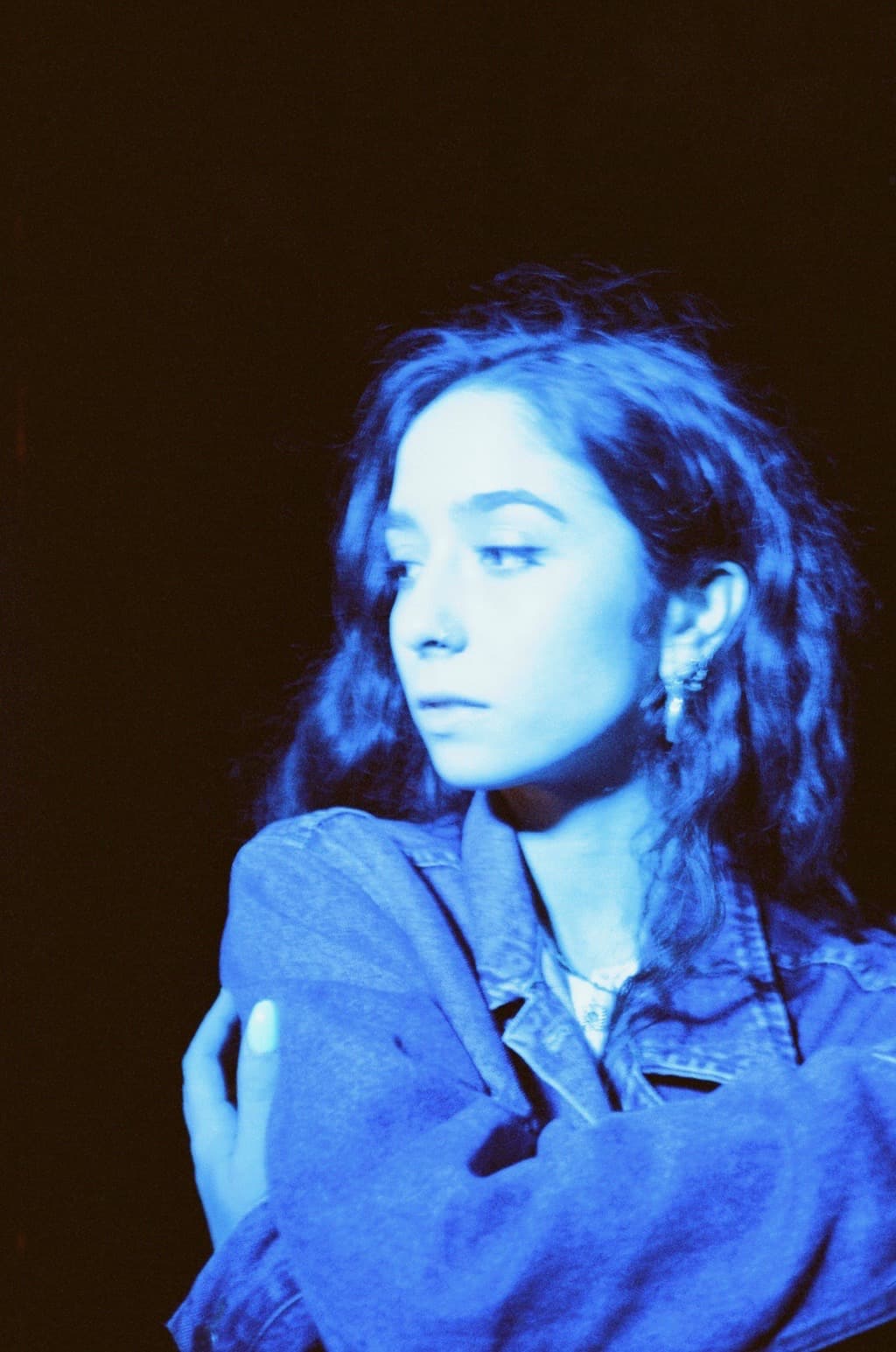
Are you the kind of person who typically writes when you're going through something difficult or can you write about happiness as well? Because I know that for a lot of artists, writing when you’re happy is very difficult. So I’m wondering what’s it like for you?
Jasmine Jethwa: I think when I’m going through something not nice, writing for me really helps and it is that way of getting out. And I think when there’s something not so bad happening in my life, that’s I tune into some other person’s story or something else going on, channelling and writing about that. Yes it’s definitely harder to write about my own emotions when there’s something not emotionally challenging happening to me.
So what would you say is the perfect situation in which to listen to your music?
Jasmine Jethwa: Reflective. I love when people listen to my music when they’re traveling on trains, buses, particularly songs like “Hurricane” and my next single after the EP is coming out. Actually, to be honest, our EP, I’ve listened to it a lot more when I’m on the train, on the bus, or driving or whatever, because that’s the right thing. It’s going somewhere, it’s not stagnant. I don’t know how to explain that, but with a lot of songs it’s like “Sit down and enjoy this” and I think I’d love people to do that as well, listen to it however you want, but I know for me when I’m on moving, on something that’s taking me somewhere, I feel like I can really appreciate my music, personally.
What’s the last great thing you listened to?
Jasmine Jethwa: Oh, King Princess’ album, Cheap Queen.
— —
:: stream/purchase Jasmine Jethwa here ::
— — — —
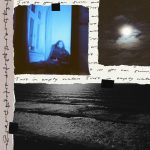
Connect to Jasmine Jethwa on
Facebook, Twitter, Instagram
Discover new music on Atwood Magazine
? © Jenna Coombs
:: Stream Jasmine Jethwa ::

